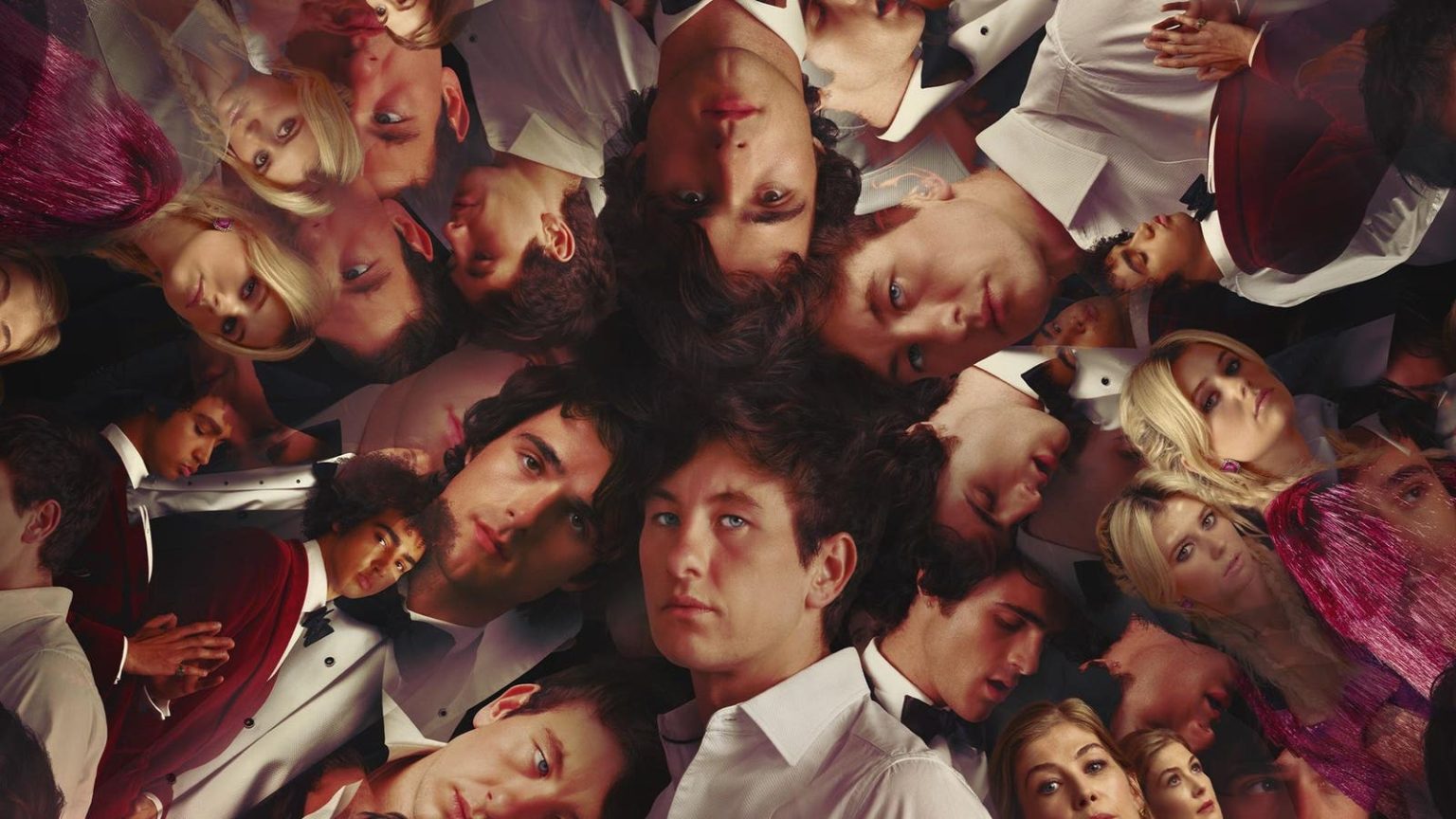Following the timely and call-to-action cinematic storytelling of Promising Young Woman (2020), Oscar-winning writer/director/producer Emerald Fennell returns with another sharp and unapologetic creation, once again sparking conversation with her new psychological thriller Saltburn from MGM and Amazon Studios, arriving in select theaters on November 17 and nationwide on November 22.
Starring two of Hollywood’s most talked about young actors right now, Barry Keoghan and Jacob Elordi, Saltburn is the story of Oliver Quick (Keoghan), a quiet and slightly awkward Oxford University student, who comes to befriend the school’s beloved pretty boy Felix Catton (Elordi). When Felix invites Oliver to his family’s lavish English estate for the summer, that is when the real fun and chaos begins.
Fresh off of his Oscar-nominated performance in The Banshees of Inisherin (2022), Keoghan continues to bring a multi-layered performance to the screen in Saltburn, embodying both a deep vulnerability in his character, as well as a rather ruthless intensity that is nearly impossible to look away from.
Elordi continues to show great versatility in his acting and a smart evolution in his character choices, following his performance as bad boy Nate Jacobs on the hit HBO drama series Euphoria (2019-) and even more recently as Elvis Presley in Sofia Coppola’s Priscilla biopic. Yes, the rising star exudes a cinematic sex symbol status that can be compared to the level of Brad Pitt during his early Hollywood years, but what is most intriguing about Elordi is the gentleness he is able to play within his characters and the seemingly effortless ways that he can completely hypnotize the camera in every scene that he is in.
As Saltburn’s tantalizing story plays out, the audience is quickly introduced to a wide array of outlandish and privileged characters. Rosamund Pike, who dazzled us all with her brilliantly polarizing performance in Gone Girl (2014), plays Felix’s wildly social yet often aloof from reality mother Elsbeth in Saltburn. Pike is an absolute riot throughout the film, with her witty and sometimes off-putting delivery of Fennell’s harshly comedic screenplay.
Co-starring a quite enjoyable Richard E. Grant, Alison Oliver, Archie Madekwe and even Promising Young Woman’s Carey Mulligan in a brief yet hilarious role, the world of Saltburn begins to unravel when these characters’ true colors are shown, realized vulnerabilities are preyed upon and sex is ultimately used as a weapon for power.
One of the smartest creative choices was Fennell choosing to set Saltburn’s story not in our present day but in the mid-2000s, a time when everyone and their mother seemed to be reading Harry Potter. It’s an era that is not too far off, but far enough back that fashion trends, both nostalgic and cringe-worthy (a worthy shoutout goes to Saltburn’s costume designer Sophie Canale), and technology were noticeably different. Yes, there were of course cell phones, but as depicted throughout the film, phone calls and emails were still the primary method of communication, being just shy of the widespread rollout of the social media world that we live in today.
As the dramatic series of events play out in Saltburn, the 2000s make these scenes that much more isolating for the characters and reminds us viewers of a time when we would actually sit and ponder quietly about the things happening around us, rather than immediately using social media as an easy communication tool to share our very personal thoughts with the public.
What Fennell does best and makes her continue to standout in modern filmmaking today is her originally cunning ways of presenting visuals that initially depict a sweet and lush fantasy world that initially seem innocent, but as the overall narrative is slowly peeled back, the audience gets to peek into a much more fractured (and dare I say sinister?) real world that lurks just below the surface.
The thoughtful changes in lighting and camera movements that occur throughout Saltburn’s story often cleverly symbolize the changes in character mindsets and the evolution of relationships. From its larger-than-life parties to the elegance of the Saltburn estate with all of its intricate details, Fennell and the film’s production designer Suzie Davies make the audience feel like we are a peeping fly on the wall around all of the high society glamour, as well as during quiet moments of temptation that happen in voyeuristic ways between doorways and physically within the dark of the night.
The music soundtrack in Saltburn quickly becomes its own vital character, setting a necessary tone in this fictional world, with songs that evoke an even greater level of escapism for the moviegoing audience. Two songs in particular towards the end of the film, “Loneliness” by Tomcraft and “Murder on the Dancefloor” by Sophie Ellis-Bextor, further enhance the heightened mood of Keoghan’s character of Oliver, making these engrossing scenes that much more memorable.
Saltburn pulls the audience in so many different directions throughout the film that you realize that it is best to stop trying to guess where this is all going and simply allow yourselves to be taken on a deliciously eccentric ride.
Read the full article here





